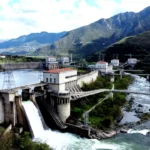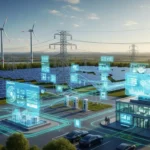The energy-water nexus is the intricate relationship between energy production, distribution, consumption, and water resources. Energy generation often requires significant water inputs, while water treatment and distribution rely on energy. This interdependence creates a nexus where decisions in one sector impact those in the other, presenting both challenges and opportunities for sustainability. Understanding the complexities of the energy-water nexus is crucial for addressing resource constraints, promoting efficiency, and mitigating environmental impacts.
Energy Production and Water Usage
Energy production, particularly in thermal power plants, requires substantial water for cooling purposes. Traditional fossil fuel-based power plants, such as coal and nuclear facilities, consume vast quantities of water, leading to competition for water resources in water-stressed regions. Renewable energy sources, such as hydropower and bioenergy, also have implications for water resources, albeit to a lesser extent. Balancing energy needs with water availability is essential for ensuring energy and water security.
Water Management in the Energy Sector
Conversely, water management is critical for ensuring the reliability and efficiency of energy production. Energy facilities rely on water for cooling, cleaning, and steam generation, making the availability and quality of water paramount. Sustainable water management practices, including water recycling, reuse, and advanced cooling technologies, can help minimize water consumption and mitigate environmental impacts. The energy sector can enhance operational resilience and reduce its environmental footprint by adopting water-efficient practices.
Climate Change and the Energy-Water Nexus
Climate change exacerbates the complexities of the energy-water nexus, posing challenges for both sectors. Rising temperatures, shifting precipitation patterns, and extreme weather events impact water availability and quality, affecting energy production and distribution. Additionally, efforts to mitigate climate change through the deployment of renewable energy sources, such as hydropower and bioenergy, have implications for water resources. Adapting to climate change requires integrated strategies considering the interconnectedness of energy and water systems.
Promoting Synergies for Sustainability
Addressing the energy-water nexus requires a holistic approach that promotes synergies between the two sectors. Integrated resource planning, stakeholder collaboration, and policy frameworks that consider the implications of energy and water are essential for sustainable development. Investing in water-efficient energy technologies, promoting renewable energy sources with low water intensity, and enhancing water conservation measures can help optimize resource use and minimize environmental impacts.
Conclusion
The energy-water nexus highlights the interconnection between energy production and water resources, presenting both challenges and opportunities for achieving sustainability. Balancing energy needs with water availability, promoting water-efficient energy technologies, and adapting to climate change are essential for ensuring energy and water security. By recognizing the interdependencies between energy and water systems and adopting integrated approaches, we can navigate the complexities of the energy-water nexus and promote a more resilient, efficient, and sustainable future.





